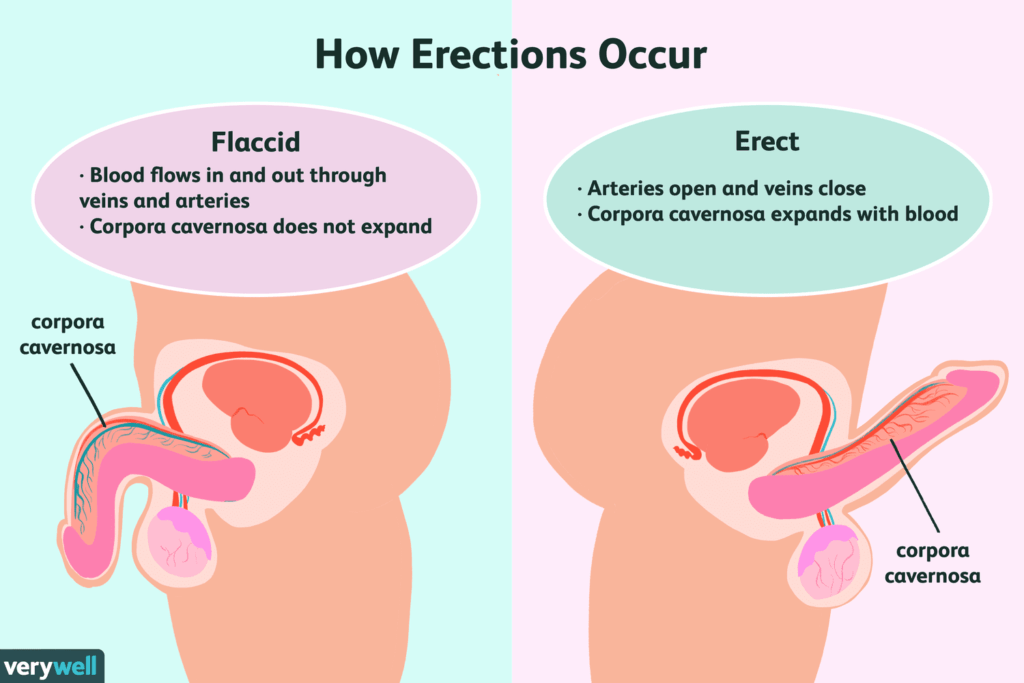
Osteopathy and Physiotherapy: What Are the Differences?
Traditionally, worldwide, most of us assume that if we have an injury or are recovering from something more serious, it is the Physiotherapist who we will continue our care with.

Erectile dysfunction is the consistent inability to achieve or maintain an erection sufficient for sexual intercourse. It can result from physical conditions such as cardiovascular disease or psychological factors like stress, anxiety, depression, or relationship problems, ultimately impacting a man’s sexual performance and well-being.
Physiotherapy interventions can address various conditions and concerns related to male reproductive health and sexual function. Here are some ways in which physiotherapy can address:
Pelvic floor exercises is a physiotherapy technique that can help strengthen and rehabilitate the pelvic floor muscles. This is beneficial for conditions like erectile dysfunction, premature ejaculation, and pelvic pain syndromes.
Physiotherapy approaches, including pelvic floor exercises, and manual therapy techniques, can help improve blood flow to the penis, enhance erectile function, and address underlying issues contributing to ED.
Physiotherapy techniques, such as pelvic floor muscle training, behavioral strategies, and relaxation techniques, can help manage and improve control over ejaculation, reducing the occurrence of premature ejaculation.
Physiotherapy interventions may play a supportive role in addressing factors contributing to male infertility, such as sperm quality, motility, and count. Pelvic floor exercises, lifestyle modifications, and stress management techniques may all contribute to optimizing reproductive health.
Physiotherapy can aid in the rehabilitation process following urological surgeries, such as prostatectomy or penile implant surgery. It may involve exercises to improve bladder control, regain erectile function, and address any complications or side effects of the procedure.
Physiotherapy approaches, including education, counseling, and behavioral interventions, can help address various forms of sexual dysfunction, including low libido, performance anxiety, and relationship issues.
Physiotherapy plays a versatile role in optimizing male reproductive health, addressing sexual function concerns, and improving quality of life for men experiencing urological and reproductive health issues. Working with a physiotherapist experienced in andrology can provide personalized care and tailored interventions to address specific needs and goals.

Erectile dysfunction can have various underlying causes, which may be physical, psychological, or a combination of both. Some common causes include:
Conditions such as diabetes, high blood pressure, heart disease, obesity, and hormonal imbalances can interfere with blood flow to the penis or affect nerve function, leading to erectile dysfunction.
Certain medications, particularly those used to treat high blood pressure, depression, anxiety, and prostate conditions, can contribute to erectile dysfunction as a side effect.
Smoking, excessive alcohol consumption, drug use, lack of exercise, and poor diet can all contribute to erectile dysfunction by affecting blood flow and overall cardiovascular health.
Stress, anxiety, depression, relationship problems, and performance anxiety can all contribute to erectile dysfunction by affecting sexual arousal and performance.
Conditions such as multiple sclerosis, Parkinson's disease, and spinal cord injuries can interfere with nerve signals between the brain and the penis, leading to erectile dysfunction.
Injuries to the pelvic area or surgical procedures such as prostate surgery or radiation therapy for prostate cancer can damage nerves and blood vessels involved in achieving an erection, leading to erectile dysfunction.
Our Services

Traditionally, worldwide, most of us assume that if we have an injury or are recovering from something more serious, it is the Physiotherapist who we will continue our care with.

Having a baby is a joyful, special event in the life of a mother. However, the process of delivery and recovery post-delivery can be challenging, particularly if a mother has undergone a C-section delivery.

Sexual health is an essential aspect of overall well-being, yet many people experience discomfort or pain during intercourse, also known as dyspareunia.

Physiotherapy, or physical therapy, focusses on assessing, diagnosing, and treating physical impairments, disabilities, and movement dysfunctions. It uses a range of techniques to help patients restore and maintain physical function.

The pelvic floor, an often-overlooked group of muscles and connective tissues, plays a crucial role in a woman’s health and well-being. Pregnancy and childbirth “regardless of the way of delivery” puts the pelvic floor muscles under pressure and have an impact on its functionality.